Introduction
As we stand on the precipice of a new digital epoch, the confluence of artificial intelligence (AI) and the metaverse heralds an era of unprecedented innovation and transformation. The metaverse, a collective virtual shared space, augmented by virtually enhanced physical reality, is evolving into an intricate tapestry woven with the threads of AI. This synergistic relationship promises to redefine the boundaries of human interaction, entertainment, and existence itself. In this exploration, we delve into the intricate mechanisms and vast potential of AI in the metaverse, unraveling a future where virtual reality becomes an integral part of our lives.
Defining the Metaverse: A New Digital Frontier
The metaverse represents more than a mere digital extension of our world; it is a burgeoning universe where digital and physical realities intertwine seamlessly. It encompasses virtual worlds where individuals can interact, socialize, and create in ways previously confined to the realm of science fiction. This digital frontier is not just a singular entity but a constellation of interconnected virtual spaces, each contributing to a cohesive and immersive experience. As we traverse this new landscape, understanding its scope and implications becomes paramount.
The Evolution of Virtual Reality: From Concept to Reality
Virtual reality (VR) has undergone a remarkable transformation from its conceptual inception to its current state of technological sophistication. Early notions of VR were often limited by technological constraints and imaginative speculation. However, advancements in computing power, graphical fidelity, and interactive technologies have propelled VR into a new dimension of realism and accessibility. Today, VR is a robust platform capable of delivering immersive experiences that blur the lines between the virtual and the real, setting the stage for the metaverse’s expansive growth.
AI and the Metaverse: A Synergistic Relationship
The integration of AI within the metaverse creates a symbiotic relationship where each technology amplifies the other’s potential. AI’s capabilities in data processing, pattern recognition, and autonomous decision-making are instrumental in crafting dynamic and responsive virtual environments. Conversely, the metaverse provides a vast, interactive canvas for AI to evolve and demonstrate its full range of applications. This synergy is the cornerstone of the next wave of digital innovation, promising experiences that are both profoundly immersive and highly personalized.
Understanding AI: The Building Blocks
At its core, AI is the science of creating intelligent machines capable of performing tasks that typically require human intelligence. This encompasses a range of technologies, including machine learning, natural language processing, and computer vision. Each of these components plays a crucial role in the development and functioning of AI-driven systems within the metaverse, enabling the creation of environments and interactions that are both complex and intuitively responsive.
Machine Learning: Empowering Virtual Worlds
Machine learning (ML), a subset of AI, involves training algorithms to learn from and make predictions based on data. In the context of the metaverse, ML algorithms analyze user interactions and preferences to tailor experiences uniquely suited to individual users. This empowerment of virtual worlds through ML allows for environments that adapt and evolve, creating a living, breathing digital landscape that responds to the needs and desires of its inhabitants.
Natural Language Processing: Enhancing Communication
Natural language processing (NLP) is a pivotal AI technology that enables machines to understand, interpret, and respond to human language. In the metaverse, NLP enhances communication by allowing users to interact with virtual entities and environments through natural, conversational dialogue. This not only makes interactions more intuitive but also opens up new avenues for accessibility and engagement, making the metaverse a more inclusive space.
Computer Vision: Bringing Depth to Virtual Environments
Computer vision, another critical AI component, involves enabling machines to interpret and understand visual information from the world. Within the metaverse, computer vision technologies are used to create visually rich and immersive environments. These technologies allow for the precise rendering of objects and spaces, the recognition of user gestures and movements, and the integration of real-world visuals into virtual settings, adding depth and realism to the digital experience.
AI in the Metaverse Creation: Crafting Virtual Worlds
The creation of virtual worlds within the metaverse is a complex endeavor that benefits immensely from AI technologies. AI-driven tools and algorithms streamline the design and development process, enabling the creation of intricate and dynamic environments that would be challenging to achieve manually. From procedural generation to character design, AI is at the forefront of metaverse creation, pushing the boundaries of what is possible in digital spaces.
Procedural Generation: AI’s Role in World-Building
Procedural generation involves using algorithms to automatically create large-scale virtual environments. AI plays a crucial role in this process, generating vast and varied landscapes, cities, and other settings with minimal human intervention. This not only speeds up the world-building process but also ensures that each environment is unique and tailored to provide a fresh experience for users, enhancing the overall immersion of the metaverse.
AI-Driven Character Design: Creating Lifelike Avatars
Inhabitants of the metaverse, represented by avatars, are brought to life through AI-driven character design. Advanced AI algorithms analyze human behavior, expressions, and movements to create avatars that are not only visually realistic but also capable of exhibiting lifelike interactions. This attention to detail ensures that users can engage with avatars that respond and react in ways that feel authentic, deepening their connection to the virtual world.
AI for Realistic Interactions: Immersive Experiences
Immersive experiences in the metaverse hinge on the realism of interactions between users and the virtual environment. AI facilitates these interactions by enabling responsive and intelligent behavior from both the environment and its inhabitants. Through advanced AI systems, virtual worlds can offer experiences that feel natural and engaging, from complex social interactions to adaptive gameplay that responds to user actions in real-time.
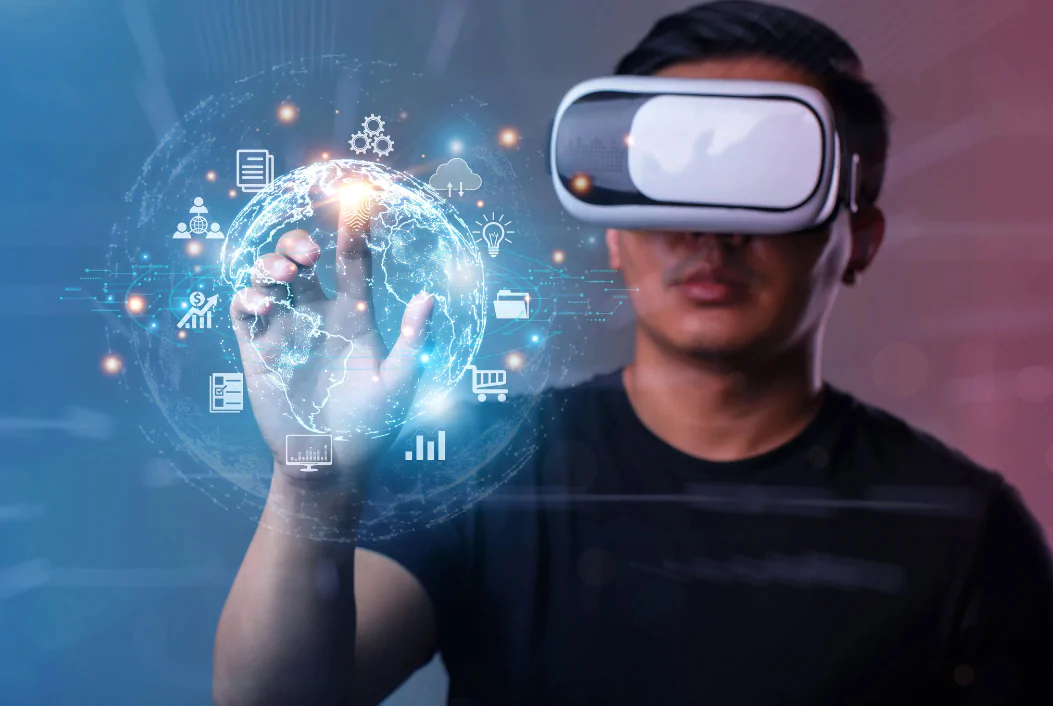
The Social Dynamics of AI in the Metaverse
AI’s impact on the metaverse extends beyond individual interactions to the broader social dynamics within these virtual spaces. By analyzing social behavior and patterns, AI can help create virtual communities that thrive on meaningful connections and shared experiences. These AI-enhanced social dynamics contribute to a richer, more vibrant metaverse where users can build relationships and communities that transcend geographical boundaries.
Virtual Communities: AI as a Social Catalyst
AI acts as a catalyst for social interaction within the metaverse, fostering the development of virtual communities. By analyzing user behavior and preferences, AI can facilitate the formation of groups and networks based on shared interests and activities. This not only enhances the social fabric of the metaverse but also ensures that users find and connect with like-minded individuals, creating a sense of belonging and community.
Ethical Considerations: Balancing AI and User Autonomy
As AI becomes more integral to the metaverse, it is essential to address the ethical considerations that arise. Ensuring that AI systems respect user autonomy and privacy is paramount. Developers must balance the benefits of AI-driven enhancements with the need to protect users’ rights and freedoms, fostering a metaverse that is not only innovative but also ethical and inclusive.
AI in Gaming: Revolutionizing Entertainment in the Metaverse
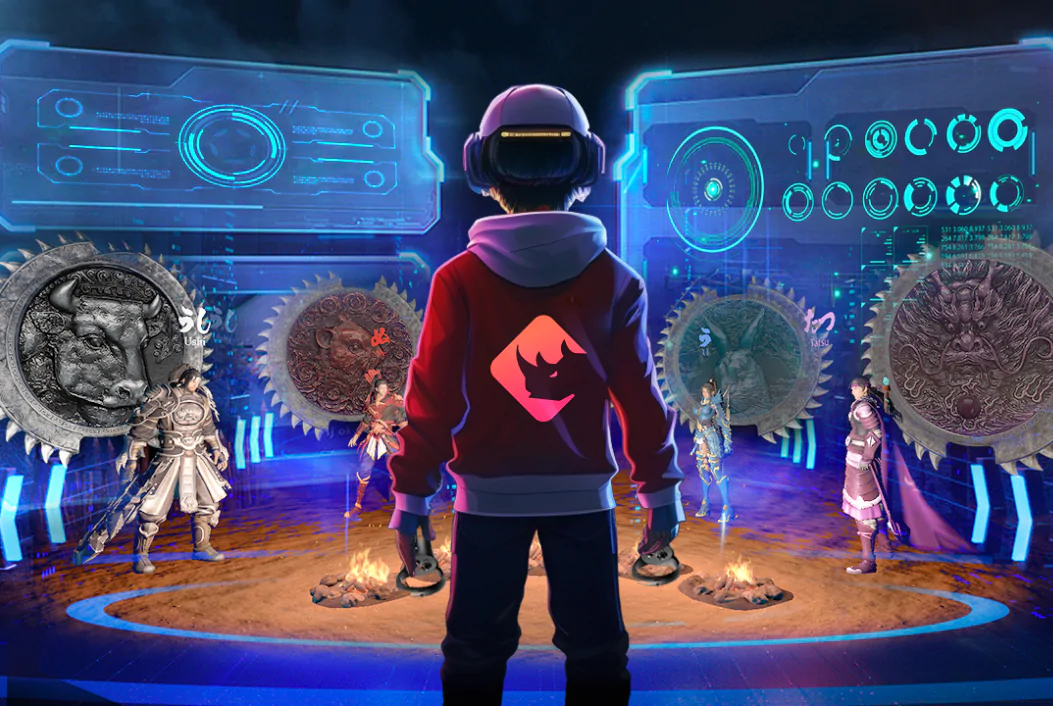
The integration of AI into gaming within the metaverse is revolutionizing entertainment, offering players experiences that are more dynamic and personalized than ever before. AI-driven game design and mechanics create adaptive gameplay and intelligent non-player characters (NPCs), elevating the level of interactivity and engagement in virtual gaming environments.
Adaptive Gameplay: Personalized Player Experiences
Adaptive gameplay leverages AI to create gaming experiences that adjust in real-time to the player’s actions and preferences. This personalization ensures that each player encounters a unique and challenging experience tailored to their skill level and play style. AI’s ability to analyze and respond to player behavior is key to creating immersive and engaging games that keep players invested.
Intelligent NPCs: Elevating Game Interactivity
Non-player characters (NPCs) in games are traditionally scripted with limited interactivity. AI transforms NPCs into intelligent entities capable of learning, adapting, and responding dynamically to players. This elevation of NPC interactivity enhances the realism and depth of virtual gaming worlds, making interactions more meaningful and engaging.
AI in Virtual Economies: Shaping Digital Marketplaces
AI is reshaping the economic landscape of the metaverse, driving the creation and management of virtual economies. From algorithmic trading to the creation and distribution of digital goods, AI plays a crucial role in ensuring the stability and growth of these digital marketplaces.
Algorithmic Trading: AI in the Metaverse Economies
Algorithmic trading, powered by AI, optimizes the buying and selling of virtual assets within metaverse economies. These sophisticated algorithms analyze market trends and execute trades at high speeds, ensuring efficient and profitable transactions. AI-driven trading systems contribute to the dynamism and liquidity of virtual economies, making them more robust and responsive.
Digital Goods: AI’s Role in Creation and Distribution
The creation and distribution of digital goods in the metaverse are increasingly influenced by AI. From designing virtual items to managing their supply chains, AI ensures that digital goods are both innovative and accessible. This AI-driven approach streamlines the production process and enhances the availability of unique, high-quality digital assets within the metaverse.
AI-Driven Security in the Metaverse
Security within the metaverse is paramount, and AI plays a crucial role in safeguarding user data and maintaining the integrity of virtual environments. Advanced AI systems are deployed to protect against data breaches, fraud, and other security threats, ensuring that users can engage in the metaverse with confidence.
Data Privacy: Protecting User Information
Protecting user information is a critical concern in the metaverse. AI-driven security systems employ sophisticated encryption and anomaly detection techniques to safeguard personal data. These measures ensure that users’ privacy is maintained, fostering trust and confidence in the metaverse’s digital ecosystem.
Fraud Detection: AI in Virtual Security
AI enhances virtual security by detecting and preventing fraudulent activities within the metaverse. Machine learning algorithms analyze transaction patterns and user behavior to identify suspicious activities in real-time. This proactive approach to fraud detection helps maintain the integrity of virtual economies and protects users from malicious actors.
The Future of Work in the Metaverse
The metaverse is poised to revolutionize the future of work, offering new opportunities for remote collaboration and productivity. AI technologies are integral to this transformation, enabling the creation of virtual offices and enhancing collaborative workflows within these digital spaces.
Virtual Offices: AI Enhancing Remote Workspaces
Virtual offices, powered by AI, provide immersive and interactive work environments that transcend the limitations of physical spaces. AI enhances these workspaces by facilitating seamless communication, automating routine tasks, and optimizing workflows. This transformation of remote workspaces fosters greater productivity and collaboration, allowing teams to work together effectively regardless of their physical location.
AI for Collaboration: Boosting Productivity in VR
AI-driven tools and platforms are revolutionizing collaboration within the metaverse. From virtual meetings to shared digital workspaces, AI enhances productivity by providing intelligent assistance and automating complex processes. This boost in collaborative efficiency enables teams to achieve their goals more effectively, driving innovation and success in the digital age.
Healthcare and AI in the Metaverse

The intersection of healthcare and AI within the metaverse opens up new possibilities for medical treatment, training, and support. Virtual therapy, AI-simulated medical environments, and other healthcare applications are transforming the way medical professionals and patients interact within these digital spaces.
Virtual Therapy: AI in Mental Health Support
AI-driven virtual therapy platforms offer innovative mental health support within the metaverse. These platforms provide interactive and personalized therapeutic experiences, allowing users to receive mental health care from the comfort of their virtual environments. AI’s ability to analyze and respond to user emotions and behaviors enhances the effectiveness of these virtual therapy sessions.

Medical Training: AI-Simulated Environments
Medical training within the metaverse is revolutionized by AI-simulated environments. These virtual simulations provide realistic and immersive training experiences for medical professionals, allowing them to practice and hone their skills in a safe and controlled setting. AI-driven simulations offer dynamic and adaptive scenarios, enhancing the quality and effectiveness of medical education.
Learn more about AI in the Metaverse and healthcare
Education and AI: A New Learning Paradigm
AI’s integration into educational environments within the metaverse is creating a new paradigm of learning. Interactive classrooms and personalized learning experiences driven by AI are transforming the educational landscape, making learning more engaging and effective.
Interactive Classrooms: AI-Driven Educational Spaces
AI-driven educational spaces within the metaverse offer interactive and immersive learning experiences. These virtual classrooms enable real-time collaboration and engagement between students and educators, creating a dynamic and responsive learning environment. AI’s ability to adapt and personalize content ensures that each student receives a tailored educational experience.
Personalized Learning: AI Tutors in Virtual Reality
AI tutors within the metaverse provide personalized learning experiences that cater to individual students’ needs and learning styles. These intelligent tutors analyze students’ progress and adapt their teaching methods accordingly, ensuring that each student receives the support and guidance they need to succeed. This personalized approach to education enhances learning outcomes and fosters a deeper understanding of the material.
Challenges and Opportunities: Navigating the AI-Driven Metaverse
The integration of AI in the metaverse presents both challenges and opportunities. While technological barriers must be overcome, the potential for innovation and growth is immense. Navigating these challenges effectively will determine the future success of the AI-driven metaverse.
Technological Barriers: Overcoming Hurdles
Technological barriers, such as computational limitations and data privacy concerns, pose significant challenges to the integration of AI within the metaverse. Overcoming these hurdles requires continuous innovation and collaboration between developers, researchers, and policymakers. Addressing these challenges effectively will pave the way for a more advanced and secure metaverse.
Future Prospects: What Lies Ahead for AI and the Metaverse
The future of AI and the metaverse is filled with potential and promise. As these technologies continue to evolve, they will unlock new possibilities for interaction, entertainment, and innovation. The AI-driven metaverse will not only enhance our digital experiences but also reshape the way we live, work, and connect in the virtual and physical worlds.
FAQ
1. What is the Metaverse, and how does AI play a role in it?
The Metaverse is a collective virtual shared space that combines elements of virtual and physical reality. AI plays a pivotal role in the Metaverse by enhancing virtual experiences through various technologies such as machine learning, natural language processing, and computer vision.
2. How does AI contribute to creating virtual worlds in the Metaverse?
AI contributes to creating virtual worlds in the Metaverse through procedural generation and AI-driven character design. Procedural generation uses algorithms to generate dynamic and varied virtual environments, while AI-driven character design creates lifelike avatars that enhance immersion and interactivity.
3. Can AI in the Metaverse enhance social interactions?
Yes, AI in the Metaverse can enhance social interactions by facilitating the creation of virtual communities and providing intelligent NPCs for realistic interactions. AI-driven platforms can match users with similar interests, foster collaboration, and create dynamic social ecosystems within the Metaverse.
4. What ethical considerations are associated with AI in the Metaverse?
Ethical considerations surrounding AI in the Metaverse include issues related to user privacy, autonomy, and transparency. It is essential to balance AI-driven automation with user control to ensure a safe and ethical virtual environment.
5. How does AI revolutionize gaming experiences in the Metaverse?
AI revolutionizes gaming experiences in the Metaverse by providing adaptive gameplay, intelligent NPCs, and personalized player experiences. These advancements enhance immersion, interactivity, and engagement, offering users a more dynamic and enjoyable gaming experience.
6. What role does AI play in shaping virtual economies within the Metaverse?
AI plays a crucial role in shaping virtual economies within the Metaverse by facilitating algorithmic trading, digital goods creation, and distribution. AI-driven systems optimize economic interactions, enhance market efficiency, and provide new opportunities for commerce and trade.
7. How does AI ensure security and privacy in the Metaverse?
AI ensures security and privacy in the Metaverse through data privacy measures, fraud detection, and virtual security systems. AI-driven technologies monitor and analyze user data, detect anomalies, and prevent fraudulent activities to maintain a secure and trustworthy virtual environment.
8. What are the future prospects of AI in the Metaverse?
The future prospects of AI in the Metaverse are vast and promising, with continued advancements in AI technology driving innovation and growth. AI is expected to further enhance virtual experiences, transform industries, and revolutionize the way we interact with digital environments.
9. How can businesses leverage AI in the Metaverse?
Businesses can leverage AI in the Metaverse to enhance customer experiences, streamline operations, and drive innovation. By integrating AI-driven solutions into virtual environments, businesses can gain a competitive edge, expand their reach, and unlock new opportunities for growth and success.
10. What are some challenges associated with AI in the Metaverse?
Some challenges associated with AI in the Metaverse include technological barriers, ethical concerns, and regulatory issues. Overcoming these challenges will require collaboration, innovation, and careful consideration of the implications of AI-driven technologies in virtual environments.
Learn more about AI Tools.
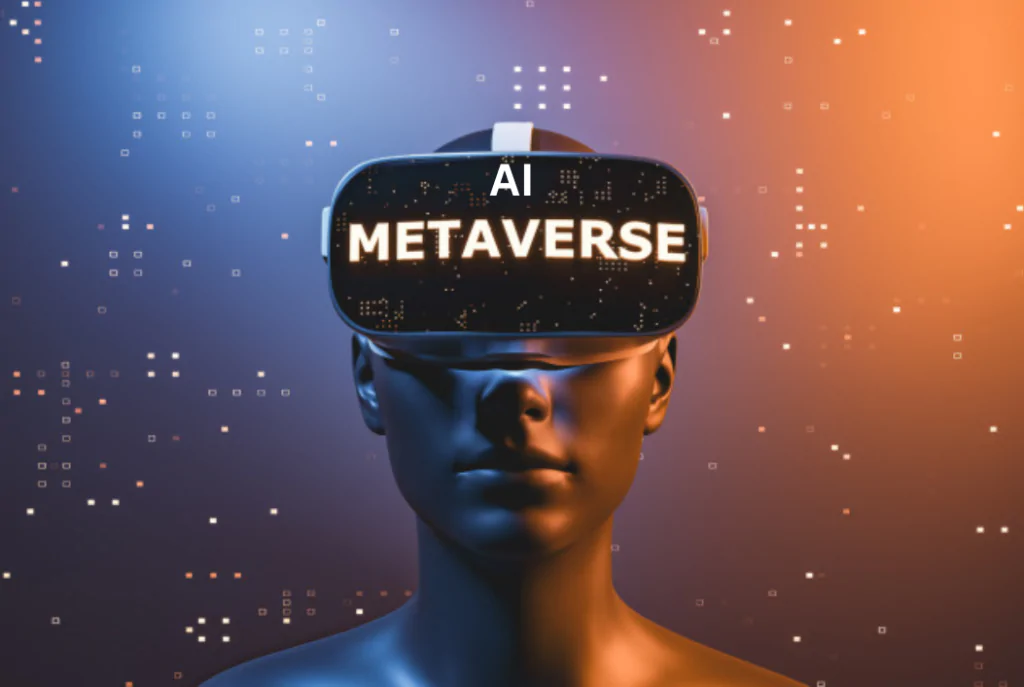
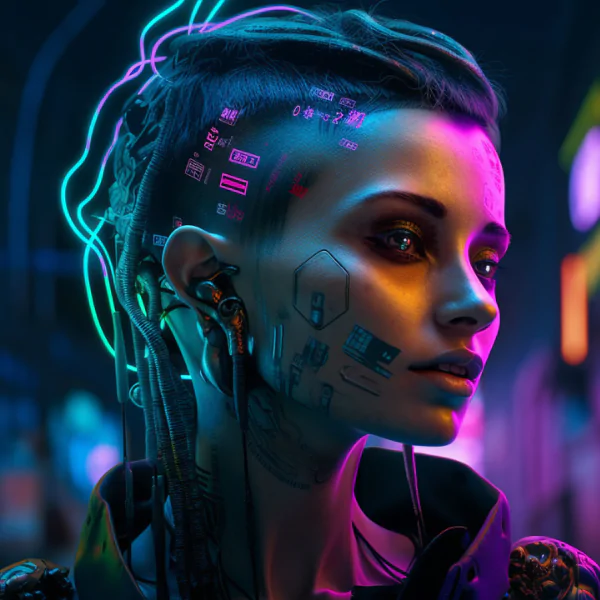
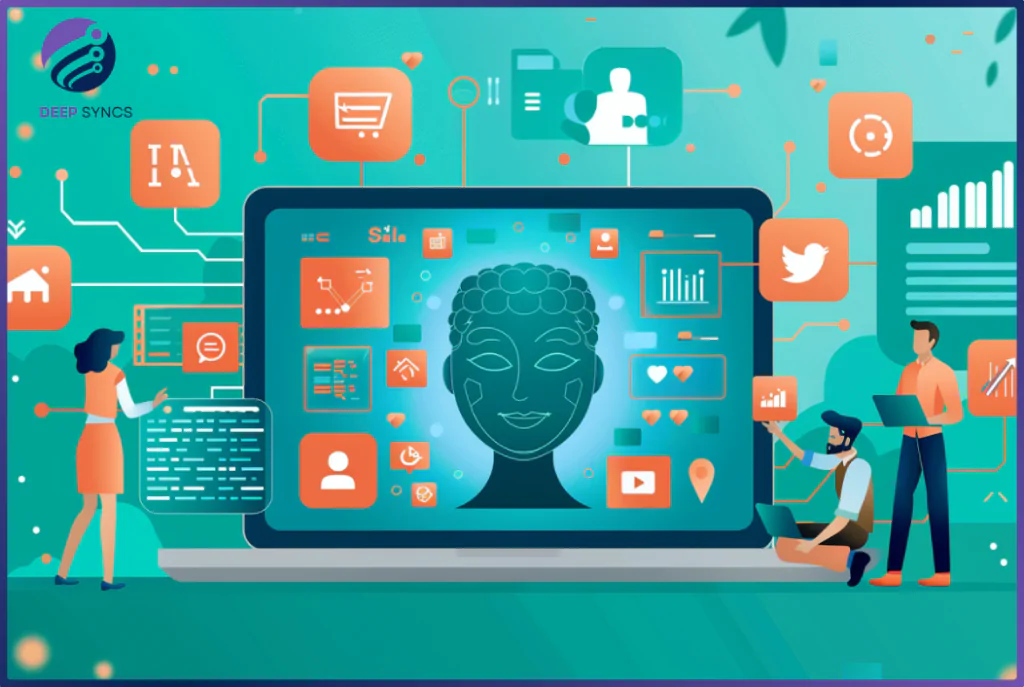
I would argue that someone played a significant role in producing a thoughtful post. Having just visited your website for the first time, I’m astonished at the sheer volume of research you performed to create this specific piece. Excellent effort.
Pingback: Nvidia's G-Assist: The Next Big Thing in AI-Powered Gaming Solutions